EPICentre Encounters: Recent advances and perspectives in multi-hazard risk and resilience
02 July 2019–03 July 2019, 9:30 am–5:00 pm
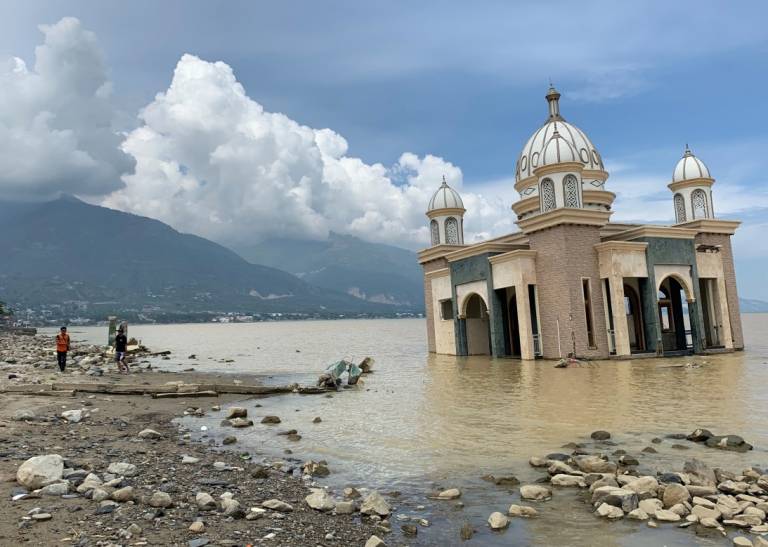
EPICentre at University College London (UCL) is an interdisciplinary research centre that investigates the risk to society, the built and natural environment from natural hazards. This two-day knowledge exchange event in London will bring together researchers, academics, practitioners and industry partners working at the nexus between risk, environmental hazards and the built environment.
Event Information
Open to
- All
Availability
- Sold out
Organiser
-
EPICentre, UCL – UCL CEGE
Location
-
UCL at Here EastQueen Elizabeth Olympic ParkLondonE20 3BSUnited Kingdom
Social events
- Welcome reception, 1st July, 18:00 - 20:00 UCL Chadwick Building, room G04: welcome drinks and canapes (please see map: https://www.ucl.ac.uk/maps/chadwick-building)
- Dinner, 2nd July Please note if you plan to attend, you will need to confirm your menu choices no later than Sunday, 20th June.
Conference Topics:
- Multi-hazard risk assessment and resilience
The Sendai Framework for Disaster Risk Reduction “aims to guide the multi-hazard management of disaster risk in development at all levels as well as within and across all sectors.” Under Priority 1, it identifies the need to promote “comprehensive surveys on multi-hazard disaster risks and the development of regional disaster risk assessments and maps, including climate change scenarios”. Several countries and organisations worldwide have undertaken to equip themselves with such tools.
Multi-hazard risk and multi-hazard impact assessments look at interaction mechanisms among different natural hazards, and how their spatial and temporal concurrence affects risk, but also recovery and resilience. Exposure and vulnerability of people, assets and goods need to be reconsidered in terms of such interactions, hence new models and methods need to be developed to produce robust risk profiles at local, national and regional levels. Several challenges remain open in producing robust methods for multi-hazard risk analysis and mitigation:
- Harmonization of representation for different hazards in multi-hazards scenarios and the uncertainties about space, time and magnitude
- The variability of exposure and vulnerability of assets and people over time and as a result of cascading/concurrent events
- Effective resilience measures for infrastructure and communities
- Multi-hazard risk and resilience in practice
- Transformative technologies for improved decision making
The Sendai Framework for Disaster Risk Reduction calls for the promotion of scientific research and to support the “availability and application of science and technology to decision making.” Science and technology can play a key role in the world’s ability to reduce death tolls in disasters and the damage/interruption to critical infrastructure.
Advanced statistical techniques, including AI and machine learning, have developed rapidly over the past 10 years causing transformative effects in many sectors. However, to date, they have not been fully explored for improving decision making in complex risk scenarios representing multi-hazards’ effects in complex urban contexts. This session will investigate how new modelling techniques and technologies can be incorporated within these frameworks to communicate risk and aid decision making when the knowledge base of the decision and its outcomes are affected by significant uncertainty.
Open questions for this session are:
- Which components of CAT models are most suitable to machine learning and artificial intelligence techniques?
- To which hazards would these techniques be most beneficial?
- How can such techniques provide better understanding of the exposure and response of complex networked systems and large-scale infrastructure?
- Innovations in disaster risk reduction and resilience
The Sendai Framework for Disaster Risk Reduction encourages better access and support for innovation and technology as well as increased investment in DRR to develop innovations that are both cost-effective and can tackle global challenges. Innovative approaches and technological responses in DRR need to also consider inequality, climate change, urbanization, the increase in population density and environmental degradation. It is essential to link sociological and scientific research and technological innovation to policy and practice.
This session will bring attention to new approaches, models and tools in DRR. These include innovative materials and structural systems, remote sensing, crowdsourcing, volunteered geographic information (VGI), multi-hazard early warning systems and disaster risk financing/insurance. It aims to examine how such tools are empowering both decision-makers and citizens to play a proactive role in managing disaster risks and providing more effective disaster response.
Key questions include:
- Damage-free innovative structural systems for resilient structures. Implementation in real building structures: Where do we start? How do we decide? How do we boost interventions?
- How do we maximize the benefits and the reach of science, technology and innovation to inform viable responses and increase resilience?
- How do we ensure that innovations (especially early warnings) reach the last mile - even the last metre?
- How do we ensure governance and sustainability through legal and policy frameworks, community engagement and partnerships among academia, the public and private sector?
- Community resilience
The Sendai Framework for Disaster Risk Reduction identifies as Priority 2 “disaster risk governance to manage disaster risk”. Specifically, it identifies as critical to the process: “clear vision, plans, competence, guidance and coordination within and across sectors, as well as participation of relevant stakeholders”. Disaster risk governance should encompass “prevention, mitigation, preparedness, response, recovery and rehabilitation” and foster “collaboration and partnership across mechanisms and institutions for the implementation of instruments relevant to disaster risk reduction and sustainable development.”
This session on Community Resilience comprises two discussion sessions focussed around community preparedness (morning) and community response and recovery (afternoon) to natural hazard events. Within these group discussions, we aim to draw on participants’ experiences to explore challenges and opportunities for promoting community resilience in different geographical and hazard contexts. We will look to identify what works and what doesn’t, lost opportunities and knowledge gaps.
Key questions include:
- What are the experiences of response and recovery in a highly affected disaster contexts?
- What works in preparing a community for a disaster – are certain theories more useful than others as the basis for such preparedness?
- Are digital or face-to-face interventions more useful in preparing a community for disasters? Should some combination of the two be used?
- What factors (e.g. religiosity) play a role in disaster recovery? Do they aid or obstruct recovery?
Each topic will be introduced by invited speakers in a plenary session and participants can then choose to attend the sessions of their choice. Within these sessions there will be a mixture of short talks and debate, with discussion of both the state of the art concerning the topic and current challenges. Attendees are welcome to contribute to a specific topic with short interventions relating a specific experience or articulating open issues. At the end of each day there will be a plenary session with rapporteurs reporting on the salient aspects and conclusions reached within the sessions.
Conference programme:
- Monday, 1st July 2019
18:00 - 20:00 UCL Chadwick Building, room G04: welcome drinks and canapes (please see map: https://www.ucl.ac.uk/maps/chadwick-building)
- Tuesday, 2nd July 2019
UCL@HereEast (please see map, below)
Themes and speakers (scroll down for speakers' bios):
Methods for multi-hazard risk assessment and resilience - Prof Fatemah Jalayer & Dr Jair Torres
Transformative technologies for improved decision making - Dr Pierre Gehl & Prof Liz Varga- 9:30 – 10:00 Tea/coffee; registration
- 10:00 – 10:30 Welcome, Introduction and Opening speeches
- 10:30 – 11:30 Plenary 4 invited speakers (15 minutes presentations)
- 11:30 – 11:45 Coffee break
- 11:45 – 13:00 2 parallel 1st workshop session (5 minutes presentation and debate)
- 13:00 – 14:00 Lunch; poster viewing
- 14:00 – 15:30 2 parallel 2nd workshop session (5 minutes presentation and debate)
- 15:30 – 16:00 Coffee break
- 16:00 – 17:00 Closing Session rapporteurs
- 17:30 – 20:00 Optional dinner near Here East
- Wednesday, 3rd July 2019
UCL@HereEast (please see map, below)
Themes and speakers (scroll down for speakers' bios):
Innovations in disaster risk reduction and resilience - Prof Andrea Dall'Asta & Dr Gordon Woo
Community resilience - Prof Dilanthi Amaratunga & Prof Andres Oreta, Dr Evangelos Ntontis- 9:30 – 10:00 Tea/coffee; registration
- 10:00 – 10:30 Welcome
- 10:30 – 11:30 4 invited speakers (15 minutes presentations)
- 11:30 – 11:45 Coffee break
- 11:45 – 13:00 2 parallel 1st workshop session (5 minutes presentations and debate)
- 13:00 – 14:00 Lunch; poster viewing
- 14:00 – 15:30 2 parallel 2nd workshop session (5 minutes presentation and debate)
- 15:30 – 16:00 Coffee break
- 16:00 – 17:00 Closing Sessions rapporteurs
It is possible to attend remotely, by conference call facilities. Participants are welcome to produce A1 posters or 5 slide powerpoint presentations, which will be shown on screens in the venue. Please let the organisers know if you wish to attend remotely or present slides.
Unless indicated otherwise, all activities will be held at UCL at HereEast, as shown in the map below.
If you have any mobility or access challenges, please let the conference organisers know and we will do our best to help.
Hotels near HereEast (Stratford): Holiday Inn, Premier Inn, ibis Please note rooms are likely to book out quickly. If you are staying in London after the conference or arriving early, you may wish to book a more central hotel for the rest of your stay.
Tweet #EPICentreEncounters
About the Speakers
Professor Dilanthi Amaratunga
Professor of Disaster Risk Management at University of Huddersfield, UK
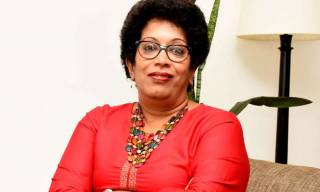
Dilanthi Amaratunga is a Professor of Disaster Risk Management at the University of Huddersfield, UK. She is a leading expert in disaster resilience with an international reputation. She is the Editor-in-chief of the International Journal of Disaster Resilience in the Built Environment, a key journal to promote research and scholarly activity that examines the role of building and construction to anticipate and respond to unexpected events that damage or destroy the built environment. She led the international peer review panel of the UN Global Assessment Report input papers in 2015. She is a member of the Steering Committee of the UNISDR "Making Cities Resilient" Campaign and one of the 2 formally appointed Campaign Advocate. She has also been appointed by the UNISDR as the Working Group Leader of the Words into action on Accountability and Governance. Dilanthi also has lead and chaired a large number of international conferences, demonstrating her role as a leader and as a conduit for international collaboration and engagement. To date, Dilanthi has published over 375 peer reviewed articles and delivered over 60 invited presentations around the world.
Professor Andrea Dall'Asta
Professor at University of Camerino, Italy
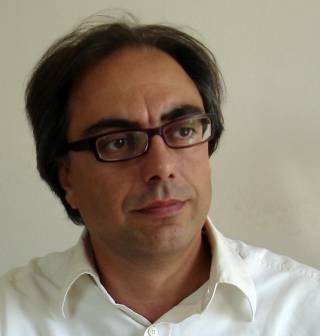
Andrea Dall’Asta is Professor of Structural Engineering at the School of Architecture and Design of the University of Camerino, Italy. His research interests focus on the seismic reliability and structural resilience of new and existing structures including innovative solutions. Amongst others, his research covers the use of passive dissipative devices (e.g., high damping rubber and BRB devices) for the control of the seismic response of bridge and existing buildings; the development of innovative structural seismic resilient systems and the uncertainty propagation and probabilistic assessment of the seismic risk.
In these and other topics, Prof. Dall’Asta has authored and co-authored more than 250 papers in International journals and conference proceedings. During his career, Andrea Dall’Asta coordinated and collaborated within several national and international research and design projects interacting with research groups in Europe, US, Asia and Australia.
He has also participated in various activities related to international code development and to committees formed by industry and other professional institutions/learned societies. Currently, since March 2014, he is Member of CEN-TC 250/SC 3/WG 13 and CEN-TC 250/SC 4/WG 3 focusing on the design of steel-concrete composite structures and of bridges and Vice-chairman of the National Committee for Standardization Sub-Commission on Steel and Concrete composite structure.
In addition, Dall’Asta has also organized or headed committees on various local and international conferences and is currently the coordinator for the organization of the National Italian Conference of Earthquake Engineering (ANIDIS) of September 2019.
Dr Pierre Gehl
Research Engineer at BRGM - French Geological Survey
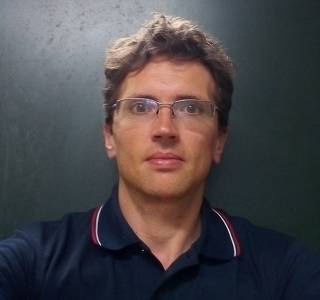
Dr Pierre Gehl, earthquake engineering expert at BRGM (French Geological Survey) since 2006, develops research activities mainly on systemic risk and risk to critical infrastructure. A graduate of Ecole Centrale Paris with a Master’s in Environmental Sciences (2005), Dr. Gehl has completed his PhD in Civil Engineering at University College London (UK, 2016), on the multi-risk vulnerability assessment of road infrastructure, as part of the FP7 INFRARISK project (2013-2016 – www.infrarisk-fp7.eu). His current work at BRGM covers the development of innovative methods for systemic risk and resilience analyses, including the physical and functional reliability assessment of exposed assets and the application of state-of-the-art probabilistic tools (e.g., Bayesian Networks). Dr. Gehl was the BRGM PI for FP7 project SYNER-G (2009-2013 – www.syner-g.eu), a pioneering project on the seismic systemic vulnerability in Europe, where he was involved in the development of a toolbox for the simulation of systemic risk scenarios.
Professor Fatemah Jalayer
Associate Professor, Department of Structures for Engineering and Architecture at University of Naples Federico II, Italy
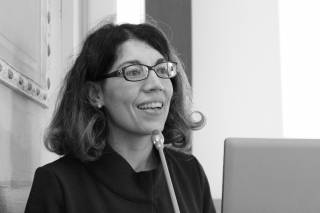
Prof Fatemeh Jalayer has joined the Department of Structural Engineering at University of Naples in 2006. Her research area is in the application of probabilistic methods to civil engineering problems. Fatemeh is focusing on areas such as, probabilistic seismic risk assessment, time-dependent risk assessment, and probabilistic seismic hazard analysis. She has also been actively involved in portfolio vulnerability and risk assessment for hydro-geological and climate-related hazards. She has completed her Ph.D. in Structural Engineering, in March 2003 at Stanford University. Her dissertation is entitled “Direct Probabilistic Seismic Analysis: Implementing Non-linear Dynamic Assessments”, under the supervision of the late Professor C. Allin Cornell. Fatemeh is a co-recipient of the 2003 Normal Medal of American Society of Civil Engineers (ASCE) and has been a George Housner Fellow at California Institute of Technology (Caltech).
Fatemeh is serving on the editorial board of the Scientific Reports, a Nature Group Publication and Journal of Risk and Uncertainty Analysis Part A and Part B (ASCE). She has been the WP leader in projects “Integrated and sustainable methods and technologies for adaptation and security of urban systems (METROPOLIS)” and “Methods and Technologies for Managing the Risk of Transportation Infrastructures (STRIT)” in the framework of Italian National Operative Projects. Fatemeh has been actively involved in the EC-FP7 project “Climate Change and Urban Vulnerability in Africa (CLUVA)” in the quality of the coordinator of activities for case-study city Dar Es Salaam. She is the author and co-author of more than 120 publications on peer-reviewed international journals and conferences.
Dr Evangelos Ntontis
Lecturer in Social Psychology at School of Psychology, Politics, and Sociology at Canterbury Christ Church University, UK
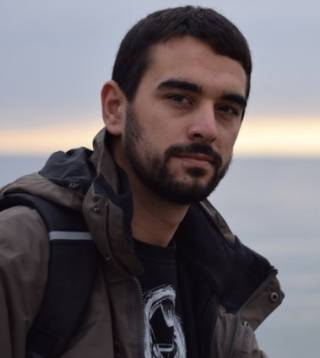
I am a lecturer in social psychology at the School of Psychology, Politics, and Sociology at Canterbury Christ Church University, UK. Before that, I did my PhD at the School of Psychology of the University of Sussex. I am interested in collective behaviour and how it can be affected by our group identities. In my most recent research I have explored the processes through which groups emerge during disasters and how they operate in the post-disaster period. I am also interested in how social psychological knowledge about collective behaviour can inform policy and practice related to community resilience in climate change and disasters. I also have a long-standing interest in the interplay between rhetoric, group identity and social issues. Such research has explored for example the mobilization rhetoric of social movements (e.g. anti-abortion activism and neo-Nazism), discursive analyses of community resilience in official guidance, toxic masculinity and sexism. For my research I use a range of qualitative and quantitative types of data and methods.
Professor Andres Winston C. Oreta
Professor at De La Salle University, Philippines
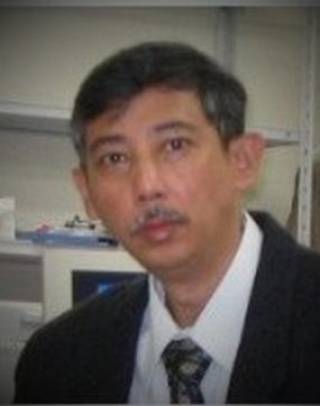
Professor Andres Winston C. Oreta is a professor at the Department of Civil Engineering (Structural Engineering Division), De La Salle University, Manila, Philippines. He served as consultant for UNISDR in the development of the concept and website for the “One Million Safe Schools and Hospitals Campaign.” He organized a Newton Workshop on “Localising Strategies for Making Cities Resilient to Disasters” with University of Huddersfield in Manila, Philippines. He has also collaborative research projects with University College of London related to resilience of schools to multi-hazards. He has also organized or headed committees on various local and international conferences such as the AUN/SEED-Net Regional Conference on Natural Disasters (2015), Conferences organized by the Association of Structural Engineers of the Philippines (ASEP) including the Asia Conference on Earthquake Engineering, and the International Conference on CE Education in 2013. He is the chair of the Philippine Group of the International Association for Bridge & Structural Engineering (IABSE).
Dr Jair Torres
Consultant, Unit for Disaster Risk Reduction and Resilience at UNESCO
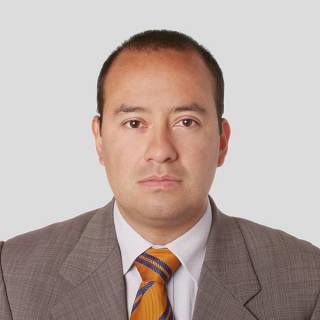
Dr Jair Torres has been a consultant for the Unit for Disaster Risk Reduction and Resilience of UNESCO in Paris since more than ten years. He is a PhD candidate at the understanding and Managing Extremes Graduate School of the University School for Advanced Studies IUSS in Pavia, Italy. He acquired his master’s degree on Development Studies at the University of Paris III, Sorbonne Nouvelle and his bachelor diploma in Finances and International Relations at the Externado University of Colombia. Mr Torres has been deeply involved in DRR and Resilience activities in UNESCO since September 2006. He has been working in the International Hydrological Programme and the Intergovernmental Oceanographic Commission. He advises and supports the Unit for Disaster Risk Reduction and Resilience in the international activities related to the scientific, educational and policy aspects of natural hazards leading to disaster. He has been involved in activities concerning school safety, early warning systems, and promotion of scientific cooperation and capacity building for disaster reduction. Among others, he has been responsible for the International Platform for Earthquake Early Warning Systems, the UNESCO’s VISUS Methodology for Assessing School Facilities and the UNESCO Programme for Measuring Resilience. He has been playing an active role in the design and implementation of the International Platform for Reducing Earthquake Disasters, the programme for Reducing Earthquake Losses and the International Network for Multi-hazard Early Warning Systems. For the last two years, he has been chairing the Global Alliance for Disaster Risk Reduction and Resilience in the Education Sector.
Professor Liz Varga
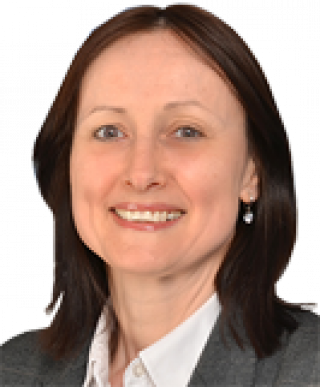
Professor Liz Varga is leading the Infrastructure Systems Institute in the Civil, Environmental and Geomatic Engineering department, UCL. She is a complexity scientist passionate about achieving positive outcomes for society from engineered systems. She was co-director of the ENCORE project which established a network in engineering complexity resilience and made a major contribution to the academic investigations of this project. Liz is a member of the UK Collaboratorium for Research on Infrastructure and Cities (UKCRIC) and a co-investigator for the Data Analytics Facility for National Infrastructure. She was previously a co-investigator for the International Centre for Infrastructure Futures which examined interdependencies in infrastructure systems, particularly in respect of resilience. Resilience forms a key component of her work on complex infrastructure systems, together with innovation and sustainability.
Dr Gordon Woo
Scientist and Risk Analyst at University College London
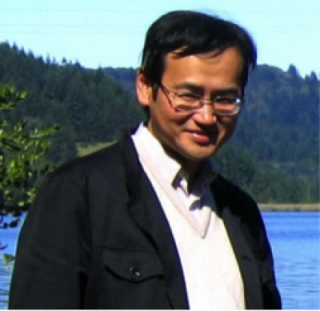
Dr Gordon Woo specializes in the assessment and management of extreme risks, both natural and man-made. As both a scientist and a risk analyst, he bridges the knowledge gap between hazard experts and risk stakeholders. Recent contributions in earthquake risk mitigation have been a study of the cost-effectiveness of a Californian earthquake early warning system, and an analysis of public engagement in operational earthquake forecasting.
He is the author of the two books, 'The Mathematics of Natural Catastrophes', published by Imperial College Press in 1999, and 'Calculating Catastrophe', published by Imperial College Press for the tenth anniversary of 9/11. Dr. Woo was a top mathematics graduate at Cambridge University, completed his PhD at MIT as a Kennedy Scholar, and was a member of the Harvard Society of Fellows. He is currently an adjunct professor at NTU, Singapore, as well as a visiting professor at University College London.
 Close
Close

